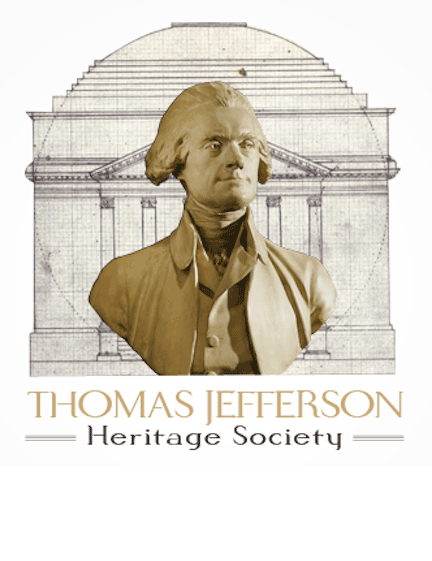SCIENCE INSIGHTS
NEWS AND COMMENTARY FROM
THE NATIONAL ASSOCIATION OF SCHOLARS
Volume 6, Issue 3 ● September 2001
Scholars Challenge Jefferson-Hemings Allegations
A careful, year-long analysis of claims that Thomas Jefferson fathered one or more children of his slave, Sally Hemings, has yielded stunning conclusions––but received little media attention.
In a stark challenge to earlier reports, all but one of the 13 scholars expressed considerable skepticism about the charge. Some went so far as to express a "conviction that it is almost certainly not true.” The Thomas Jefferson Heritage Society (TJHS) initiated the study, but allowed its members to work independently.
According to the scholars' report, much of the evidence against Jefferson consists of misleading or inaccurate facts. Among the most shocking is the revelation that a key document says precisely the opposite of what proponents of the allegation claim.
The document is a handwritten letter penned by Jefferson's granddaughter, Ellen Randolph Coolidge. In her book Thomas Jefferson and Sally Hemings, New York Law School professor Annette Gordon-Reed describes the letter as stating, "No female domestic ever entered his [Jefferson's] chambers except at hours when he was known not to be in the public gaze."
The report, however, includes a photocopy of Coolidge's letter. Her handwriting is not at all difficult to read. The relevant passage states:
His apartments had no private entrance not perfectly accessible and visible to all the household. No female domestic ever entered his chambers except at hours when he was known not to be there, and none could have entered without being exposed to the public gaze.
The scholars also discuss the DNA testing that has been touted as proof of Jefferson's paternity. According to their report, the scientists who performed the tests acknowledged, when pressed, that the results confirm only that one of more than two dozen males in the Jefferson family is the father of Eston, Sally Hemings's youngest son. The report explains:
[E]very knowledgeable authority we have consulted, including other scientists who conducted the tests, has denied that these tests could possibly have distinguished among the male members of the Jefferson family in determining the paternity of Eston Hemings. These tests compared nineteen markers on the Y chromosomes of fourteen individuals: five living male-line descendants of two sons of Thomas Jefferson's paternal uncle, who was assumed to have the same Y chromosome as Jefferson's father and thus of Jefferson himself, three male-line descendants of three sons of the paternal grandfather of Peter and Samuel Carr,1 five male-line descendants of two sons of Thomas Woodson, and one male-line descendant of Eston Hemings. The results showed a match between the haplotypes of the Jefferson descendants and the Eston Hemings descendant, but no other matches. In plain words, they showed that a descendant of one of Sally Hemings' children carries Jefferson genetic markers, not those of the Carr brothers, which effectively rules out the possible paternity of Sally Hemings’ youngest child by any of the Carr brothers and points to some male Jefferson as his likely father.
Further, the report cites credible evidence suggesting that a younger brother, Randolph Jefferson, was more likely to have fathered Eston than Thomas Jefferson himself. Robert F. Turner, of the University of Virginia, chaired the commission. Other members who endorsed the majority view were Lance Banning, University of Kentucky; James Ceaser, University of Virginia; Robert H. Ferrell, Indiana University; Charles R. Kesler, Claremont McKenna College; Alf J. Mapp, Jr., Old Dominion University; Harvey C. Mansfield, Harvard University; David N. Mayer, Capital University; Forrest McDonald, University of Alabama; Thomas Traut, University of North Carolina School of Medicine; Walter E. Williams, George Mason University; and Jean Yarbrough, Bowdoin College.
Also on the panel was Paul Rahe, a professor of history at the University of Tulsa. Rahe described himself as in “general agreement” with the report. Nonetheless, he did not vote with the other members out of a belief that it is “somewhat more likely than not" that Jefferson was, in fact, the father of Eston Hemings.
